Submitted by WA Contents
Beus Center for Law and Society by Ennead Architects Opens at Arizona State University
United States Architecture News - Aug 18, 2016 - 16:11 19852 views
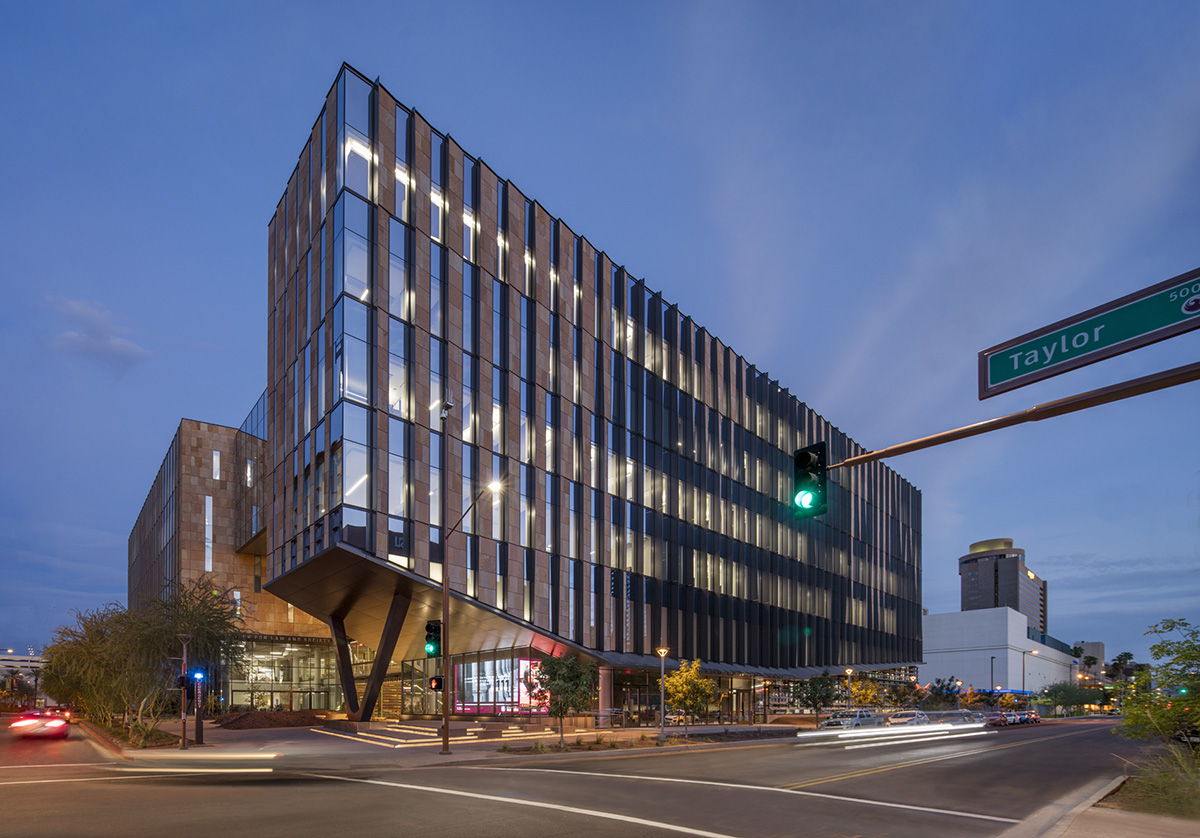
The Sandra Day O’Connor College of Law reinvents the traditional law school experience through the construction of a new, modern facility, the Beus Center for Law and Society, in the heart of downtown Phoenix. The relocation of the law school to this area of Arizona State University’s downtown campus provides beneficial programmatic adjacencies to the Phoenix legal and criminal justice community and unique opportunities to advance the College’s pedagogical mission.
The Beus Center for Law and Society is designed to act as an institutional change agent, dedicated to educating students and citizens on the importance of the law in shaping civil society. The six-story, 260,000-square-foot (2,4154 square-meters) state-of-the-art facility, designed by Tomas Rossant of Ennead Architects in collaboration with Jones Studio, repositions the law school as a conduit for connecting the school’s progressive legal scholarship with its commitment to the community by providing services like a public interest law clinic and the nation’s first not-for-profit teaching law firm.
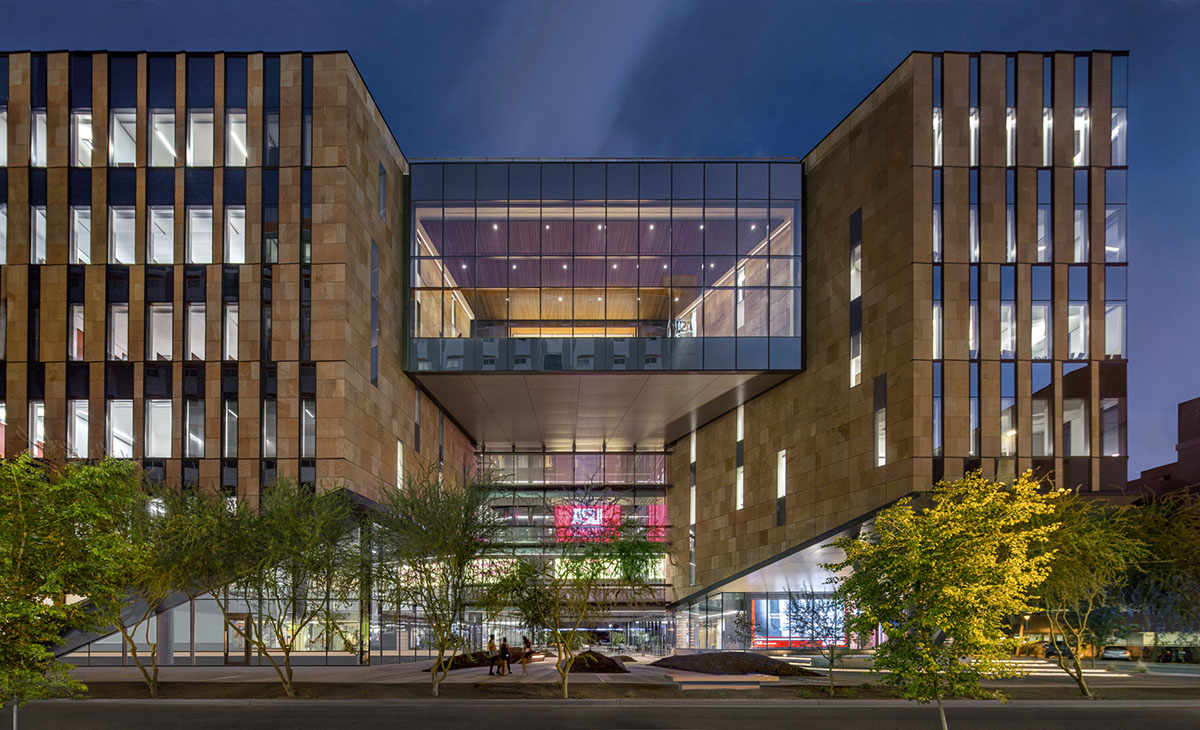
The building design was conceived and developed with openness to the public in mind and creates a unique urban environment that encourages vibrant connections between ASU, the College of Law and the local downtown Phoenix community.
A north-south “slice” through the courtyard massing creates an inviting and active public space with a pedestrian pathway that brings individuals directly into the central core of the law school, exposing them to the main lobby and three double-height spaces located at the heart of the building.

These three spaces are stacked vertically and serve as the core of the College, with the Great Hall on level one, the main library floor on level three and an outdoor courtyard on level five. Library stacks and study spaces extend up to the upper levels and serve as the primary circulation paths, which promote intellectual and social interchange between students, faculty and visitors.
The “slice” through the building is stitched together by open-air walkways that bridge east and west and provide access to a suspended double-height reading room at the north and two stories of think tank space at the south.
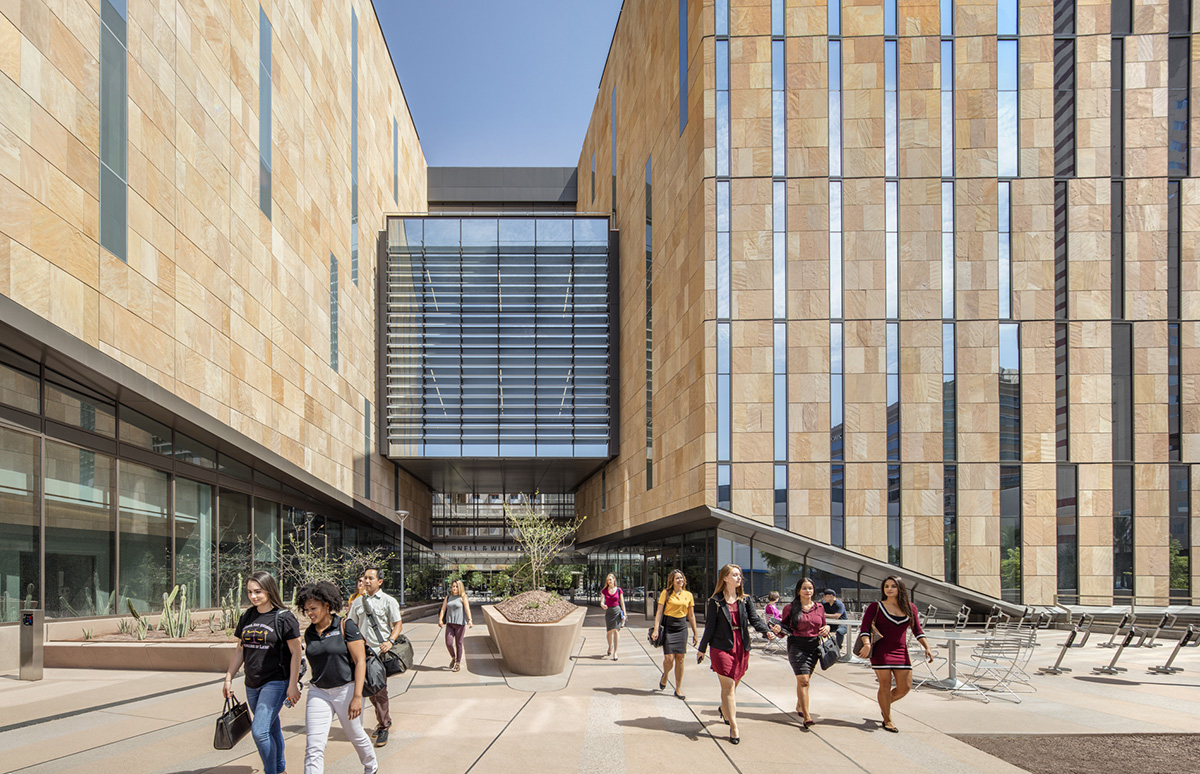
Sustainability was a key design driver throughout the process. The self-shading, saw-toothed configuration of the main building façade, comprised of Arizona sandstone with aluminum and glass windows, changes in response to solar orientation, window size and programmatic requirements.
The façade is unitized and factory assembled, both to assure quality and to achieve a higher standard of thermal performance. Heavily insulated walls and roof also contribute to the efficiency of the shell.
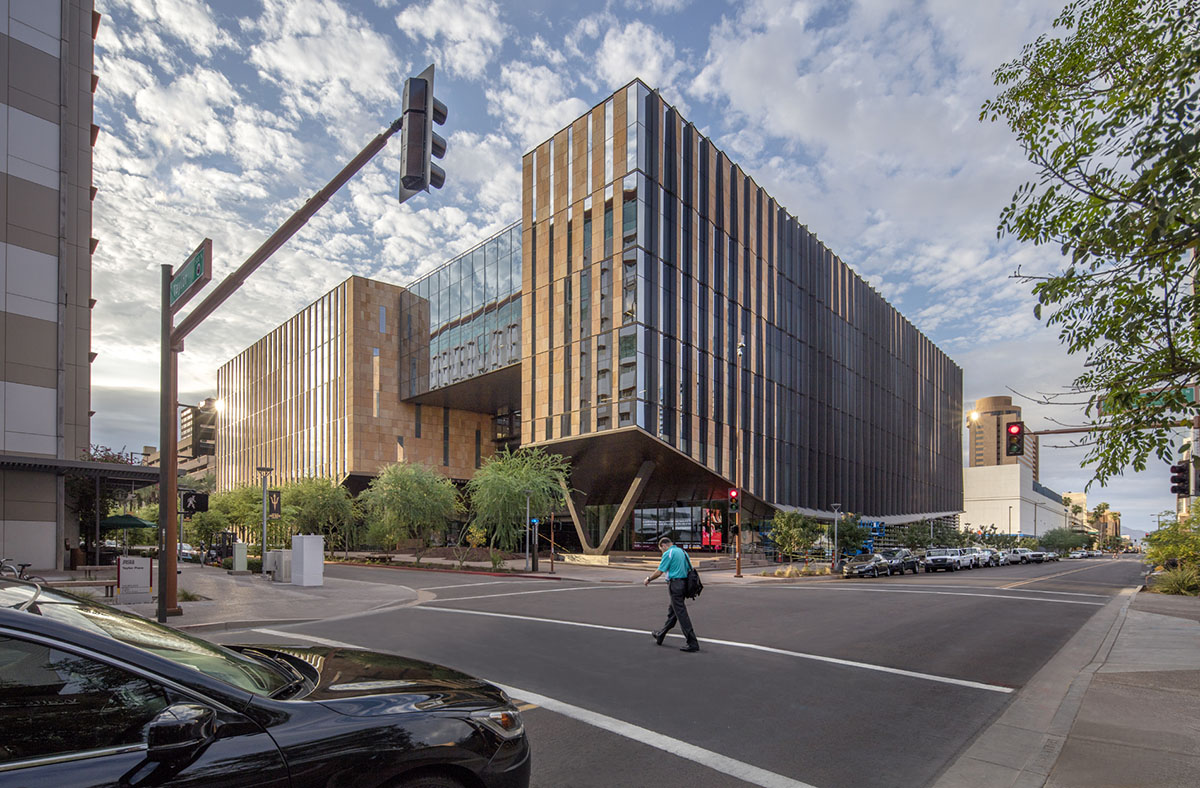
Mechanically, the building incorporates energy- efficient technologies, including chilled beams and under-floor displacement cooling. Consequently, the building is expected to reduce energy consumption by 37% compared to a baseline building, per ASHRAE 90.1-2007. Desert-adaptive planting and water features activate the landscape, helping to minimize on-site irrigation demands.
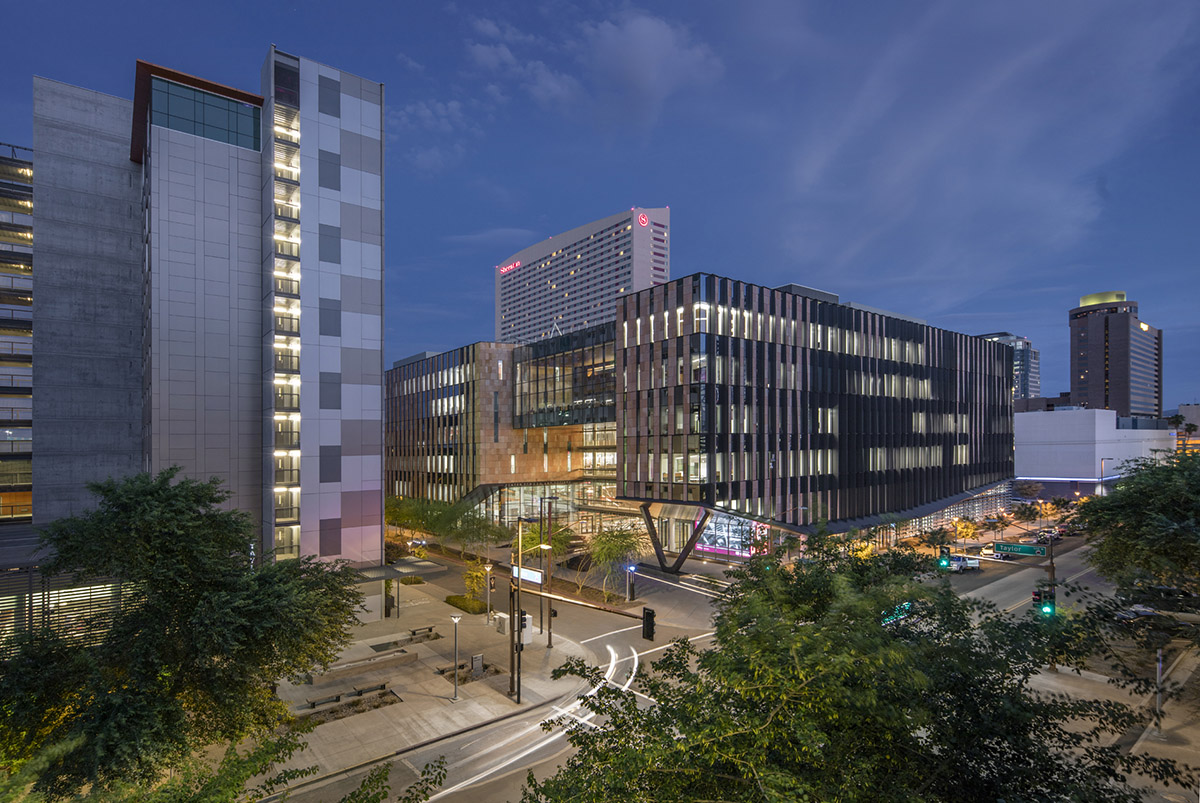
Other design features include an innovative retractable seating system in the Great Hall that allows the space to be converted from an everyday tiered arrangement to a more formal auditorium configuration.
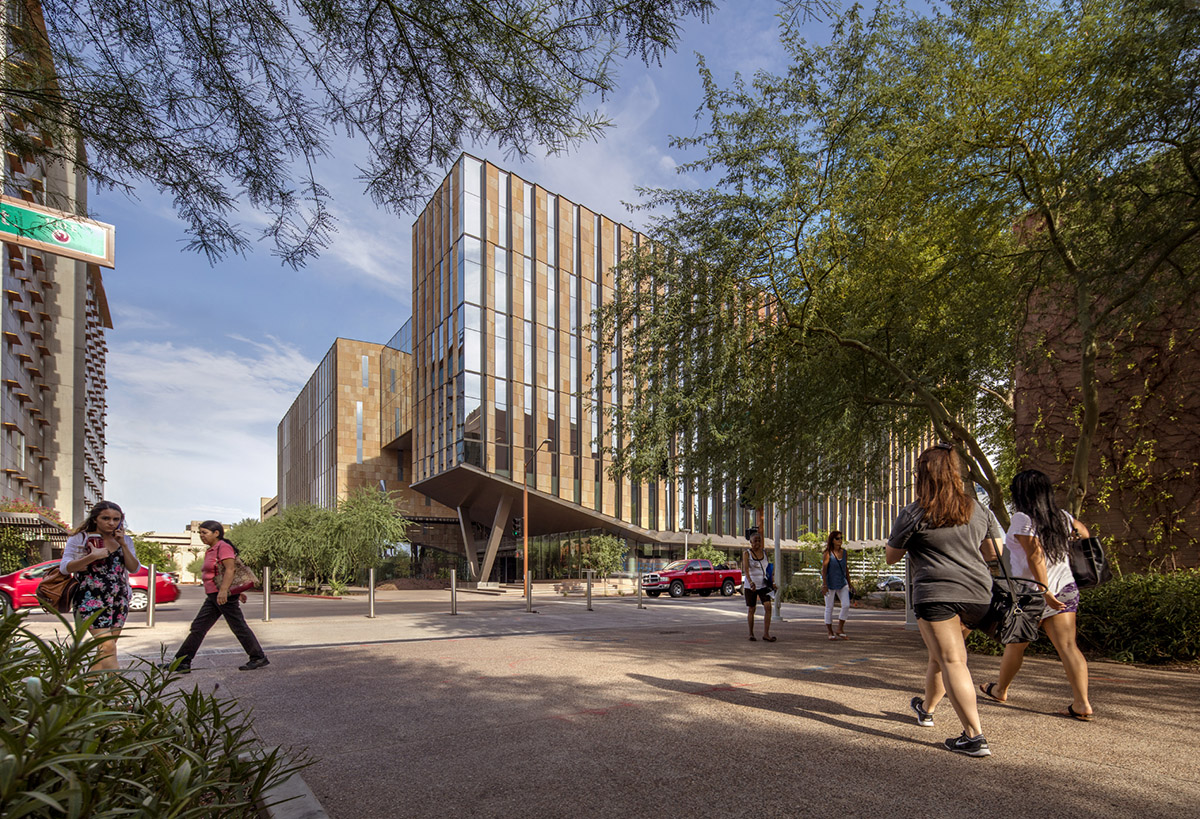
Unlike traditional retractable seating where the chairs and tiered platform are attached and both retract together, the design team developed a motorized tray-like system that allows for each row of auditorium chairs to be deployed independently and concealed within the individual tiers. When the chairs are in their retracted position, the tiered array of wood steps serves as a unique social space and interior landscape that encourages interaction.
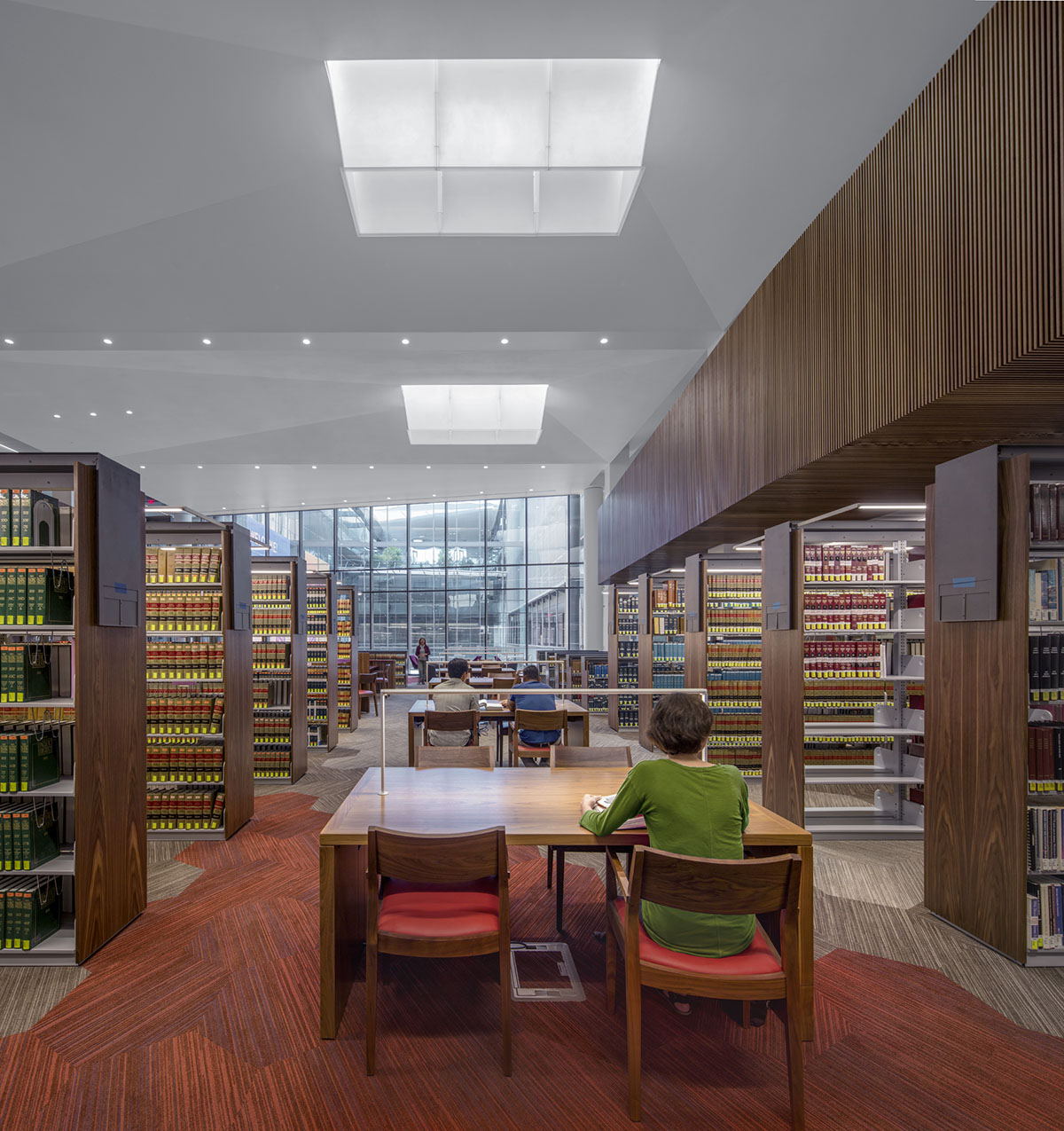
The expansive bi-folding glass door at the front of the Great Hall blurs the line between indoor and outdoor space, providing flexibility while offering a unique civic space to the downtown Phoenix community. Its welcoming gesture of openness clearly communicates and embodies the overarching mission of the College of Law’s new home as a place where the study and practice of law and society converge.
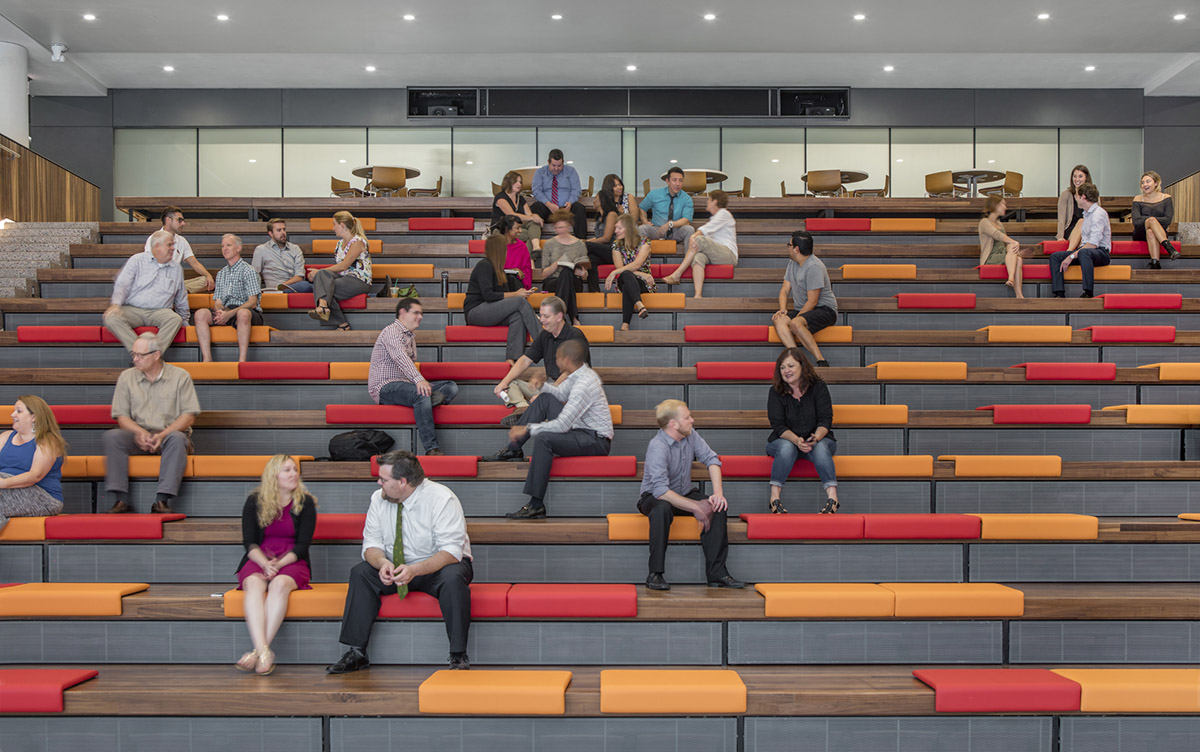
In an area of downtown newly invigorated with the addition of retail spaces, a bookstore and an independently owned and operated café, a large interior media display projects out towards Taylor Street and 1st Street and activates the street, featuring upcoming events, current legal topics and other programmable content that informs and reminds the public of the many ways law shapes society.

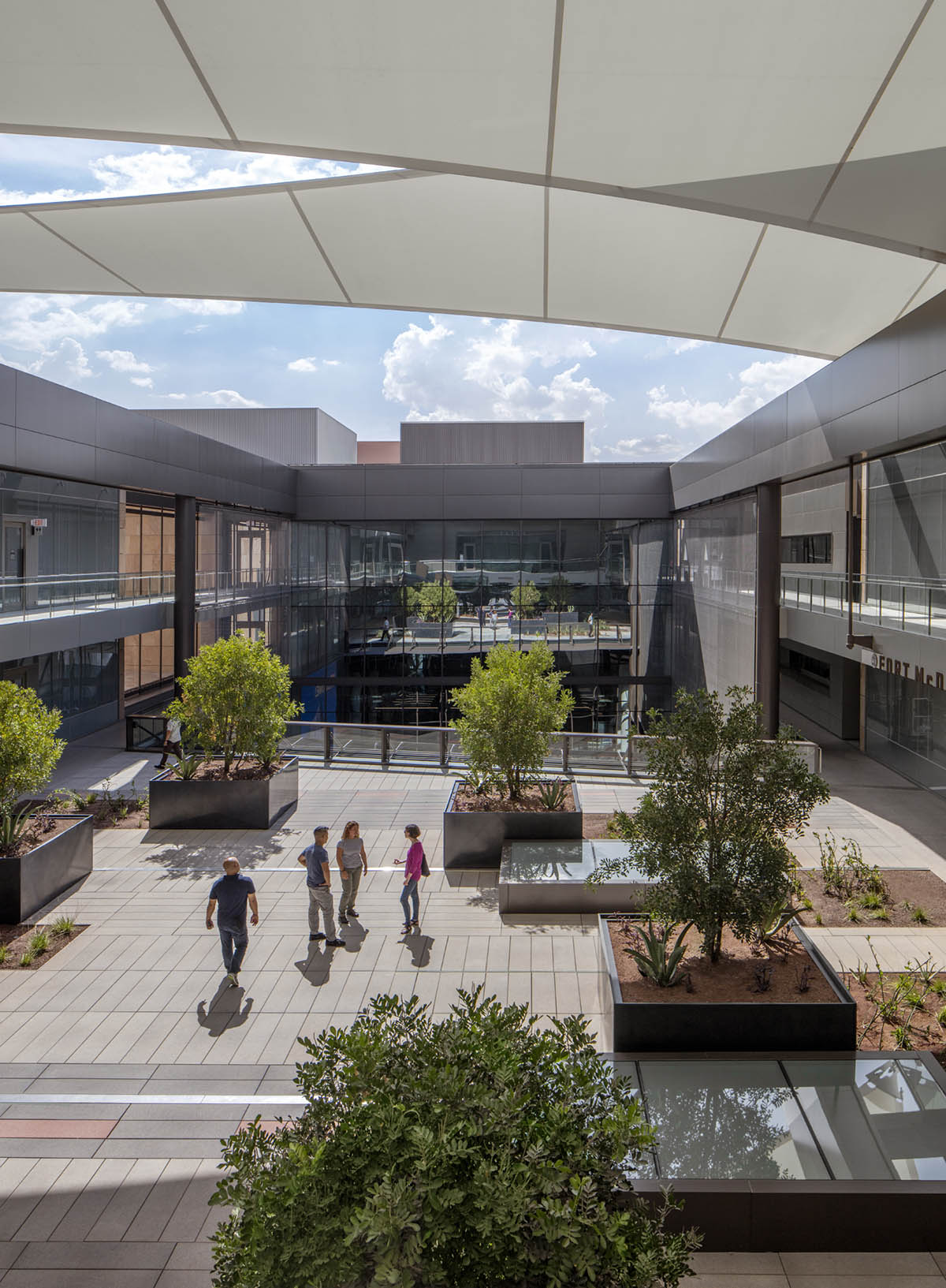



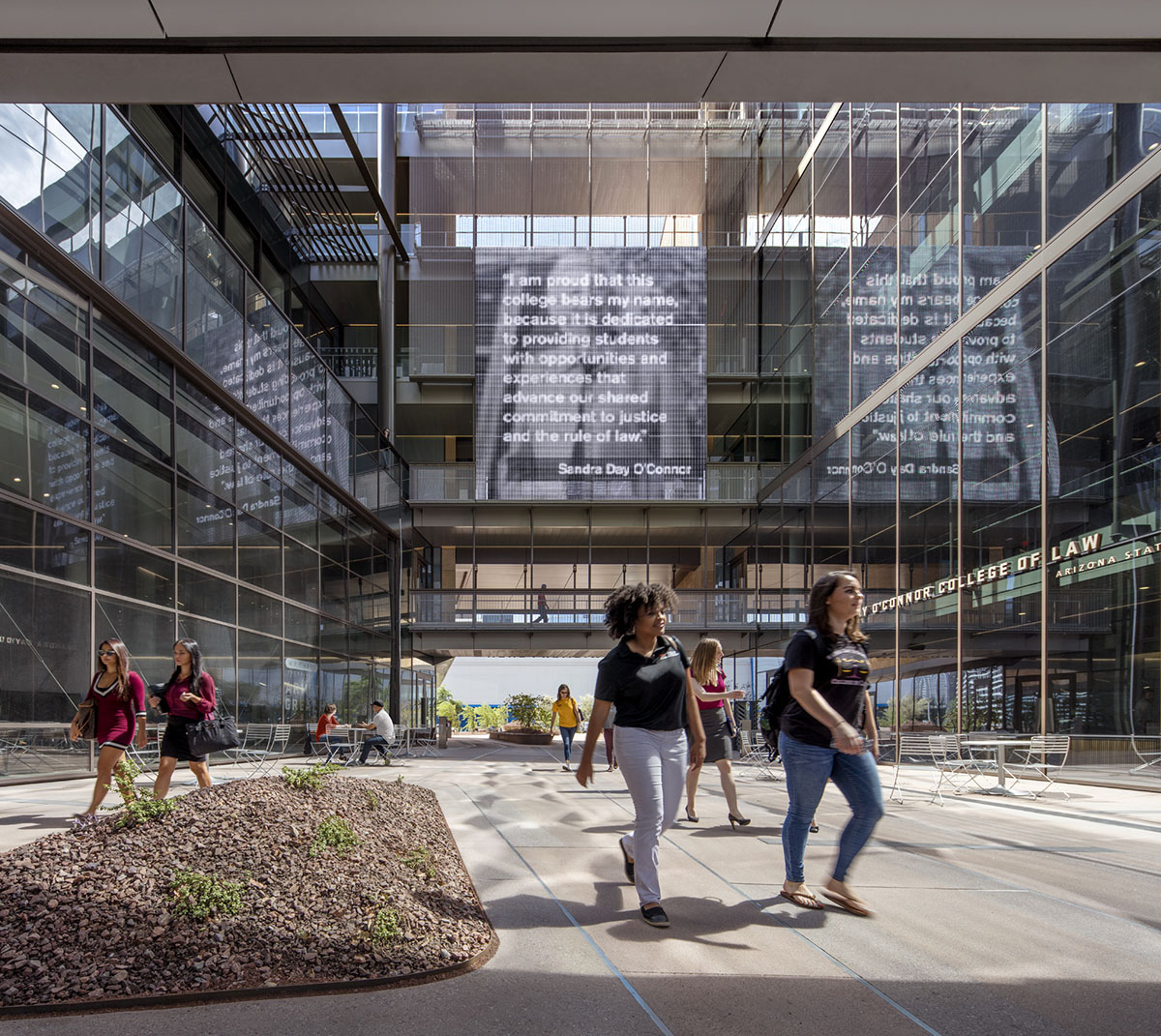
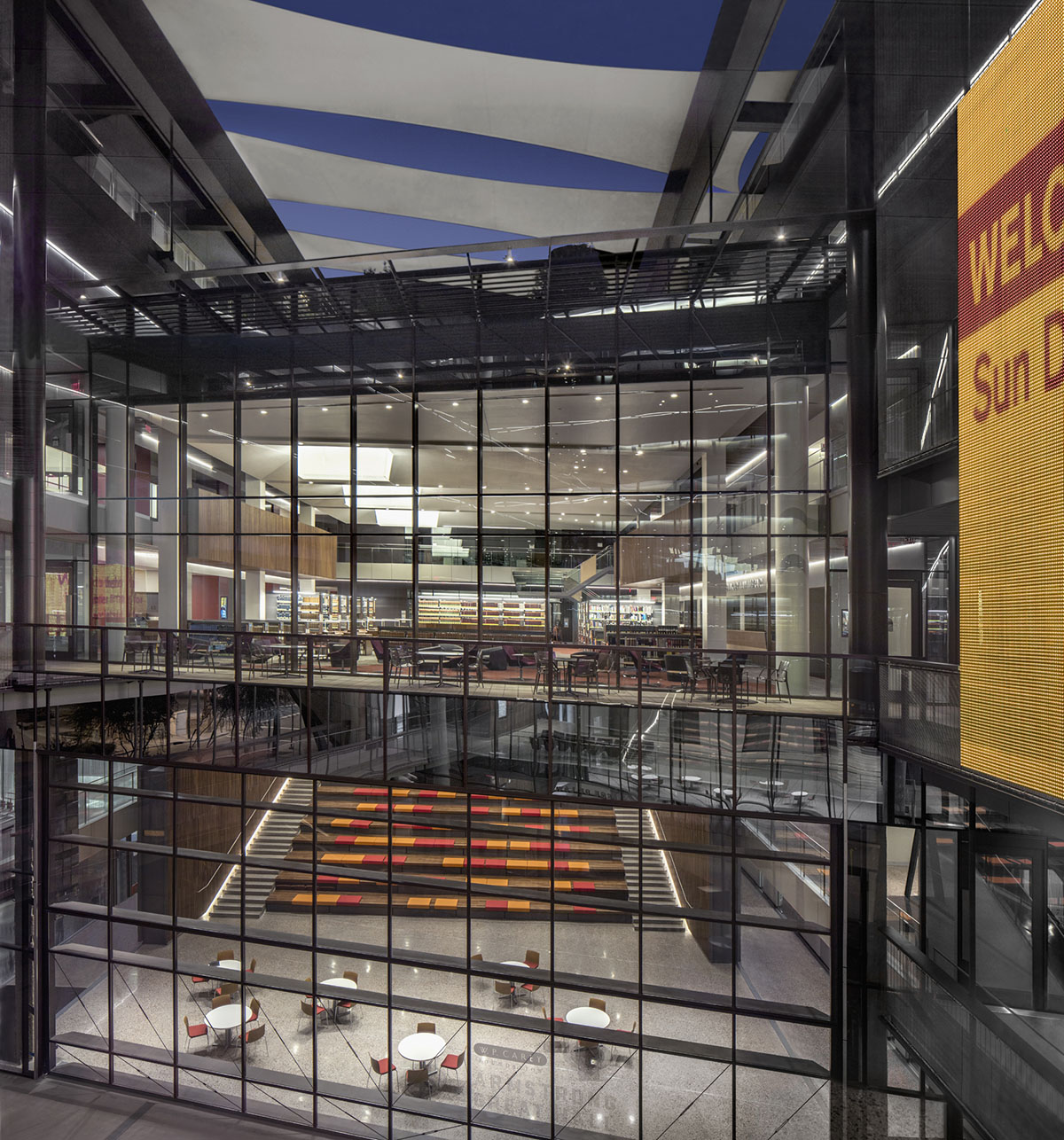

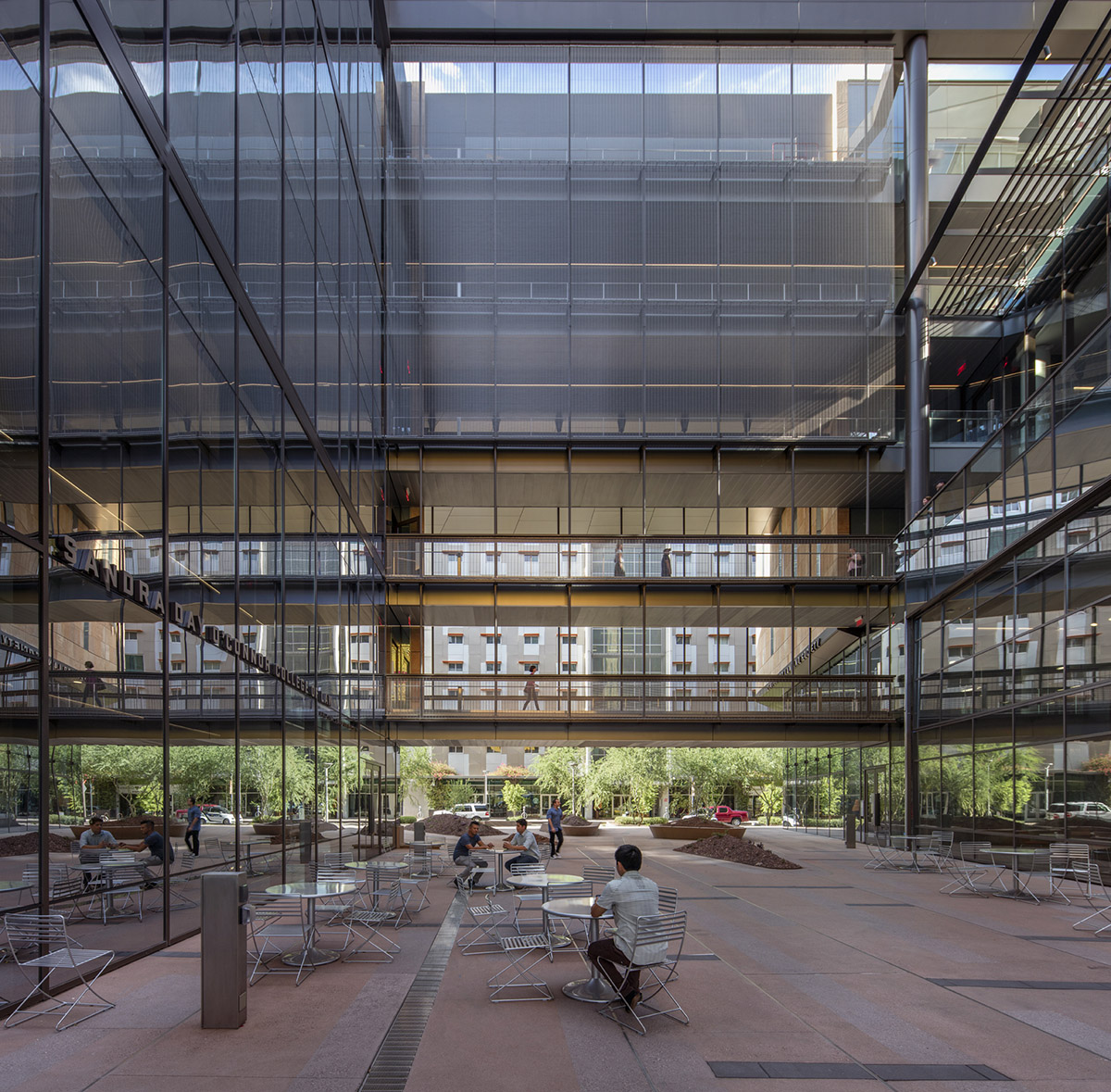
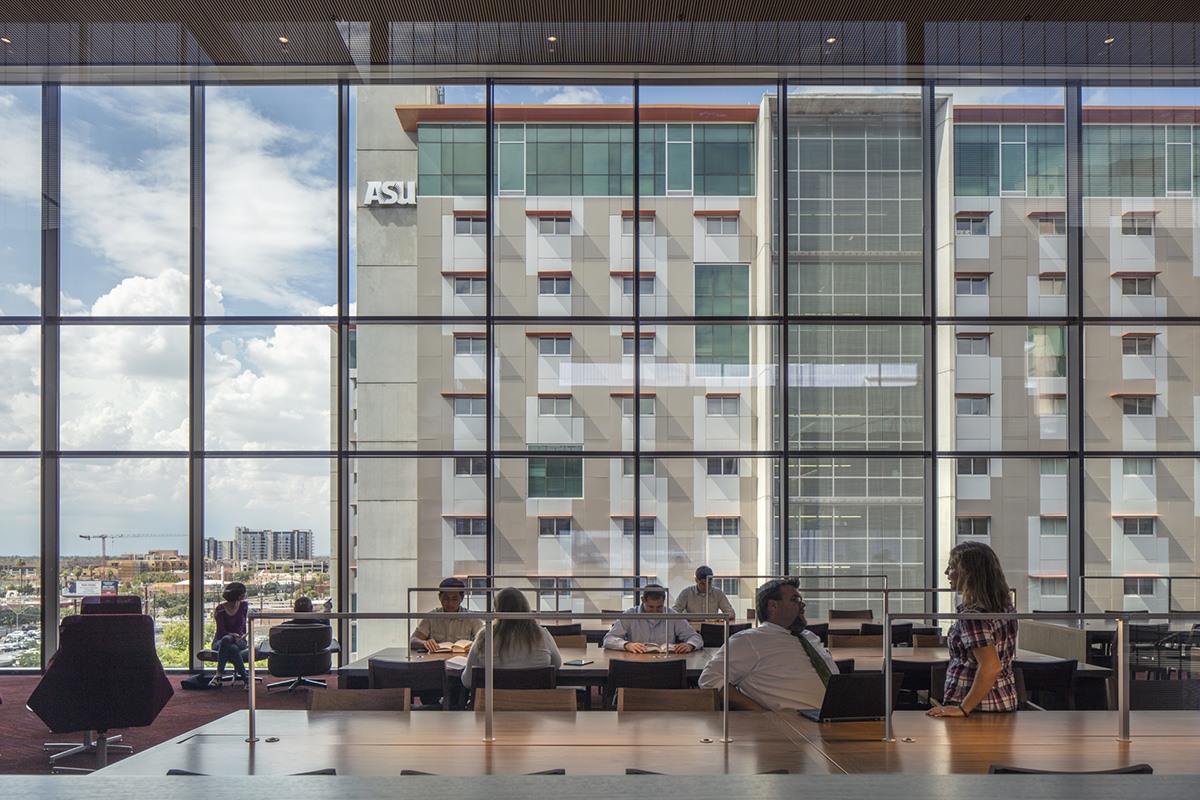
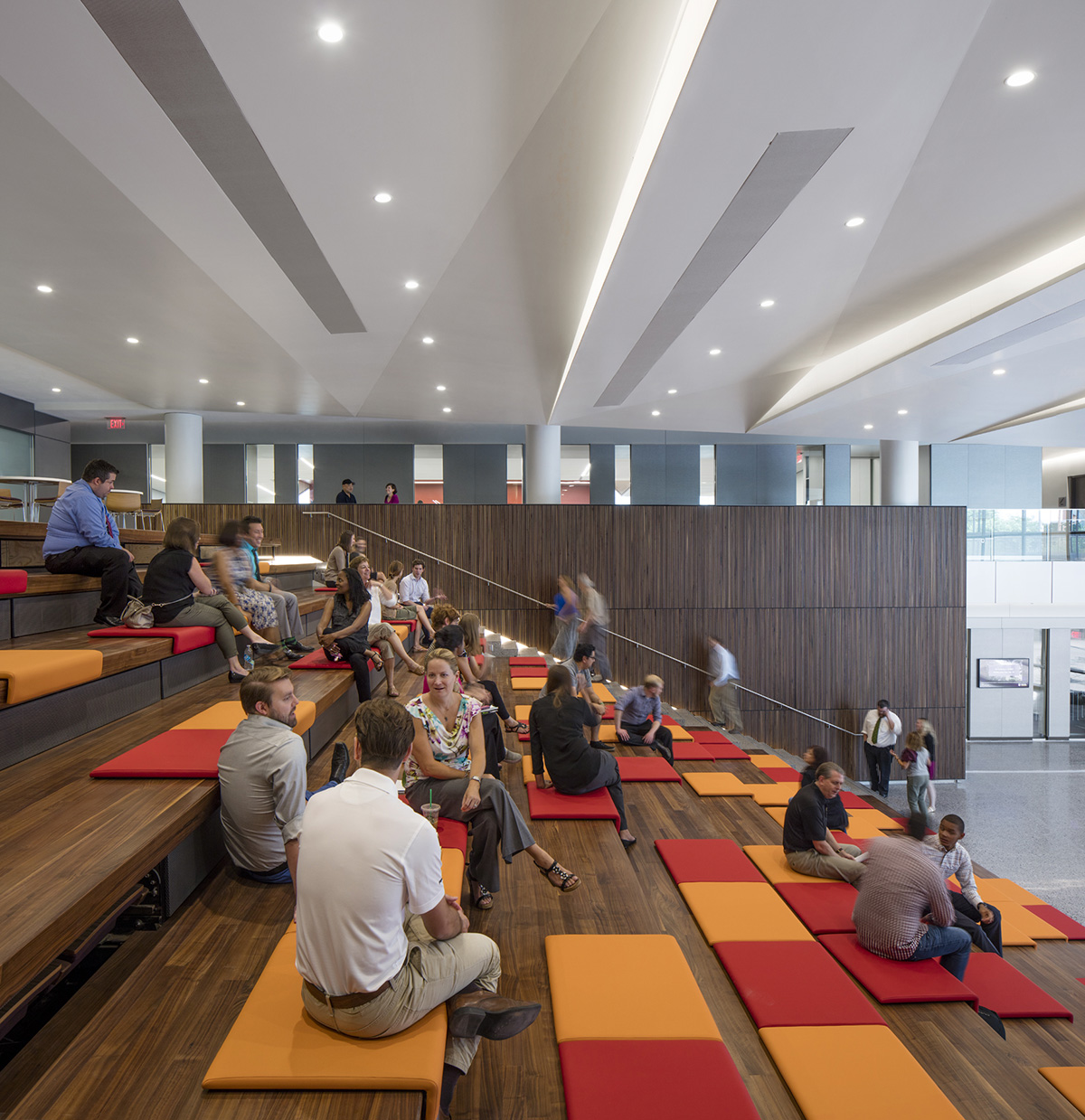
Project Fcats
Architect: Ennead Architects
Design partner: Tomas Rossant AIA
Management partner: Timothy Hartung FAIA
Project manager: Felicia Berger AIA, LEED AP
Project designer: Brian Masuda AIA
Project architect: M. Gregory Clawson AIA, LEED BD+C
Project team: Michael Caton, Alfonso Gorini, Wanlika Kaewkamchand, Eliza Montgomery, Adam Sheridan, Natasha Skogerboe, Brent Stringfellow, Margaret Tyrpa, Joanna Williams
Local architect: Jones Studio
Lead designer: Brian Farling AIA
Principal-in-charge: Neal Jones AIA, LEED AP
Project team: Jacob Benyi, Dan Childers, Eddie Curiel, Melissa Farling, Aaron Forbes, Rob Huff, Eddie Jones, Joanna Noonan, Bill Osborne, Maria Salenger, Eric Watson
Consultant team
Structural: Buro Happold Engineering
MEP/FP: Buro Happold Engineering
Lighting Design: Buro Happold Engineering
Sustainability: Buro Happold Engineering
Landscape: Colwell Shelor Landscape Architecture
Civil: Dibble Engineering
Geotechnical: Ninyo & Moore
AV/Telecom/Acoustics: McKay Conant Hoover Inc., JBA Consulting Engineers, Inc.
Graphics: Poulin + Morris, Inc.
Code: Hughes Associates
Cost estimating: Construction Cost Management Consultancy (CCMC)
Parking: Walker Parking Consultants
Specifications: Construction Specifications Inc.
Renderer: Atchain
Construction manager: DPR Construction
All images © Bill Timmerman
> via Ennead Architects
